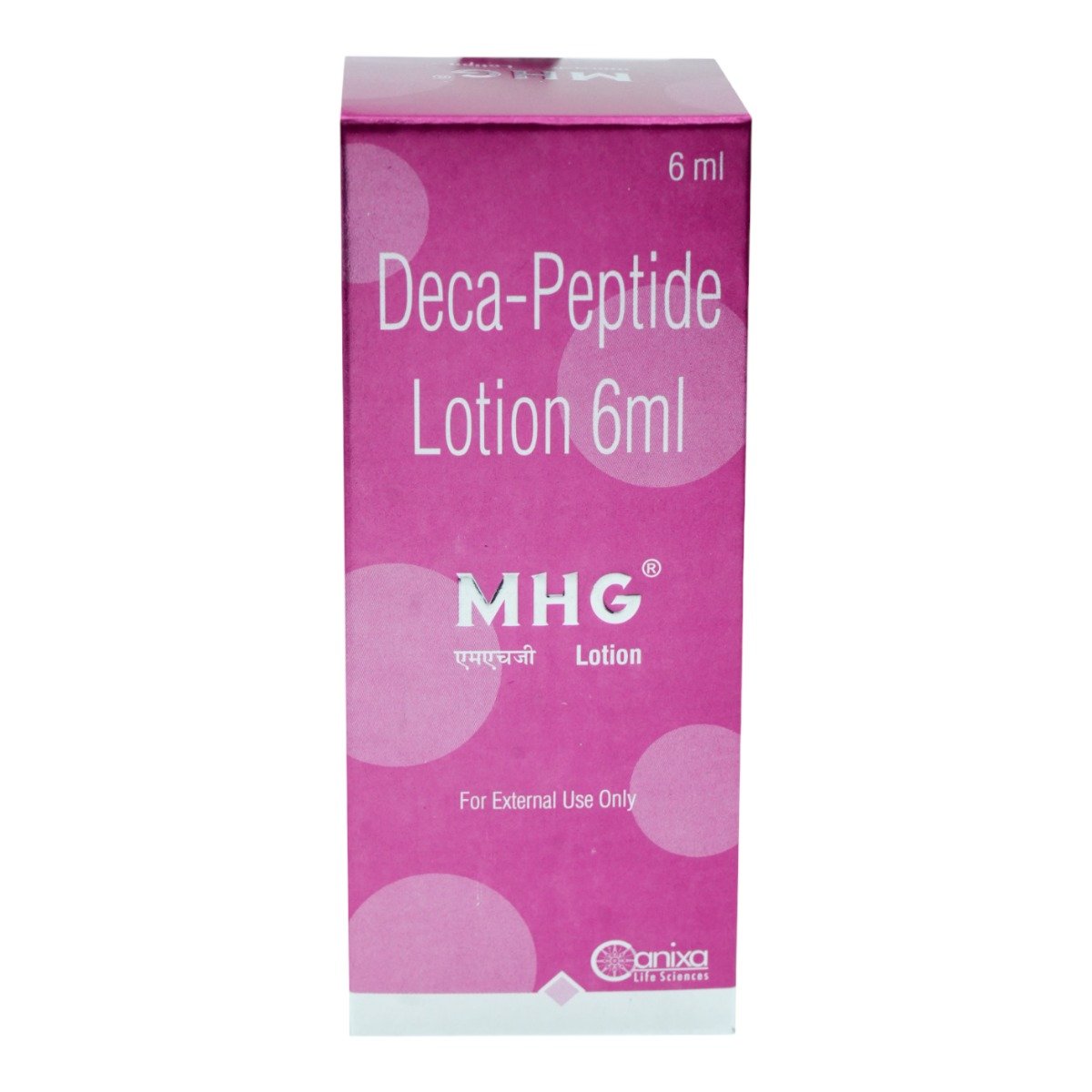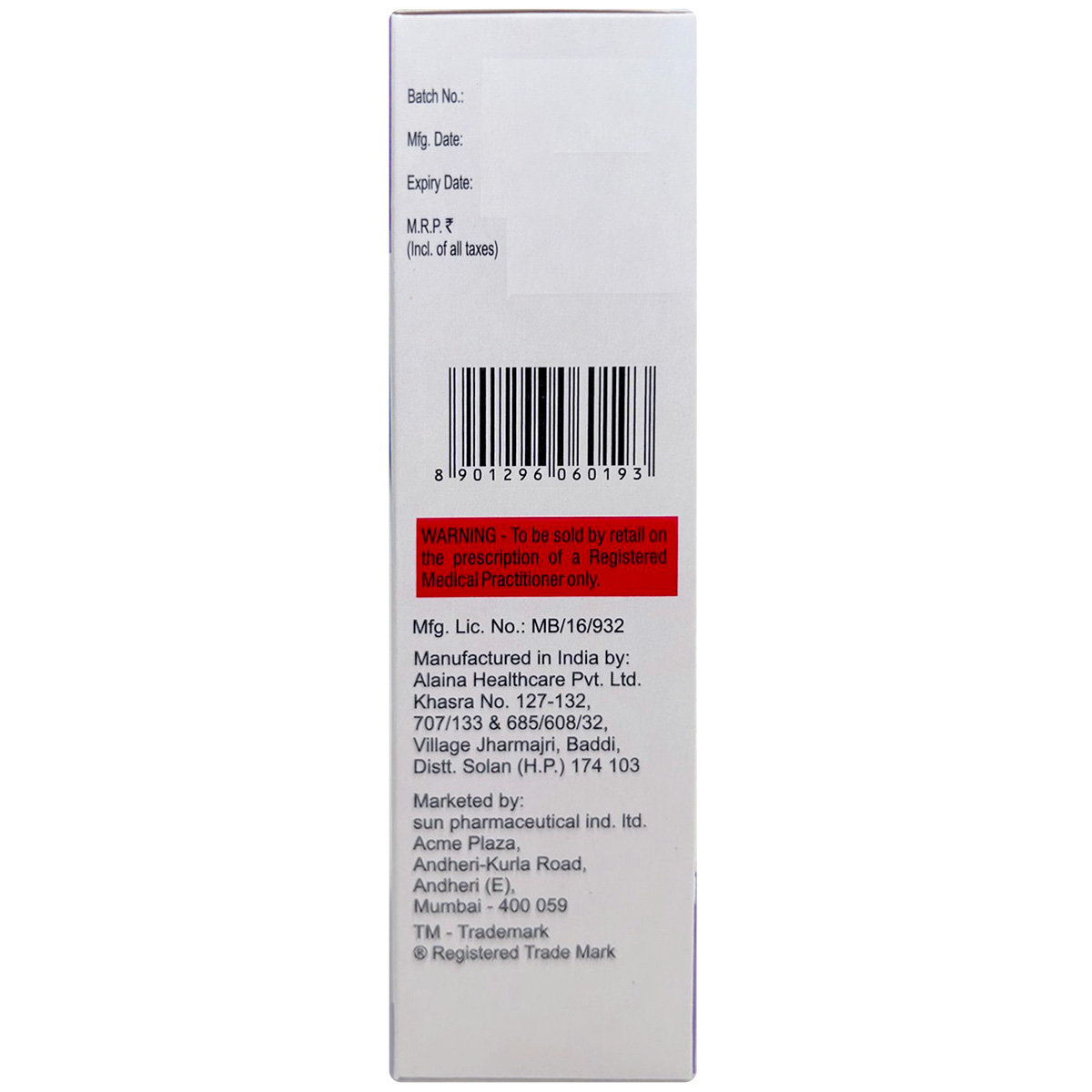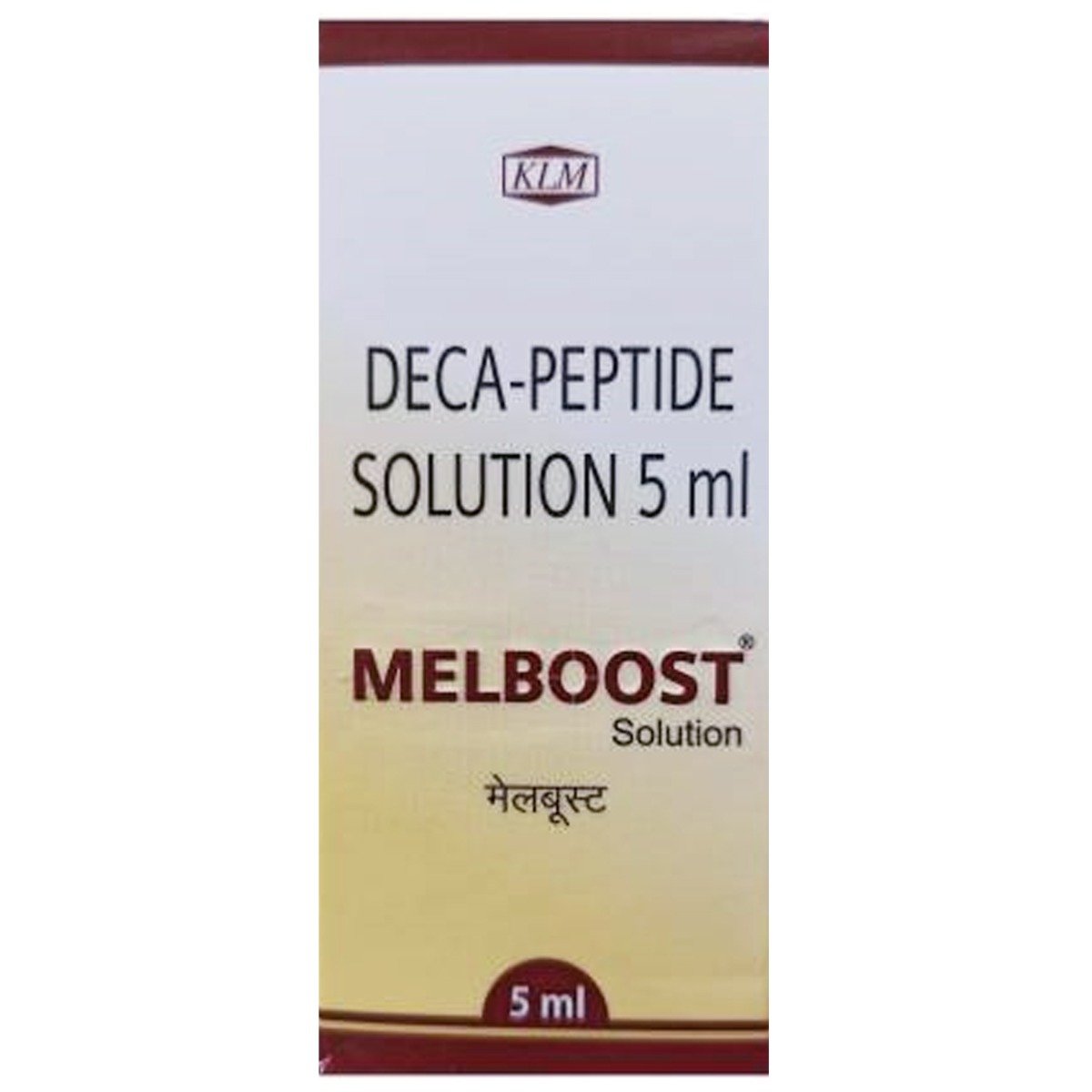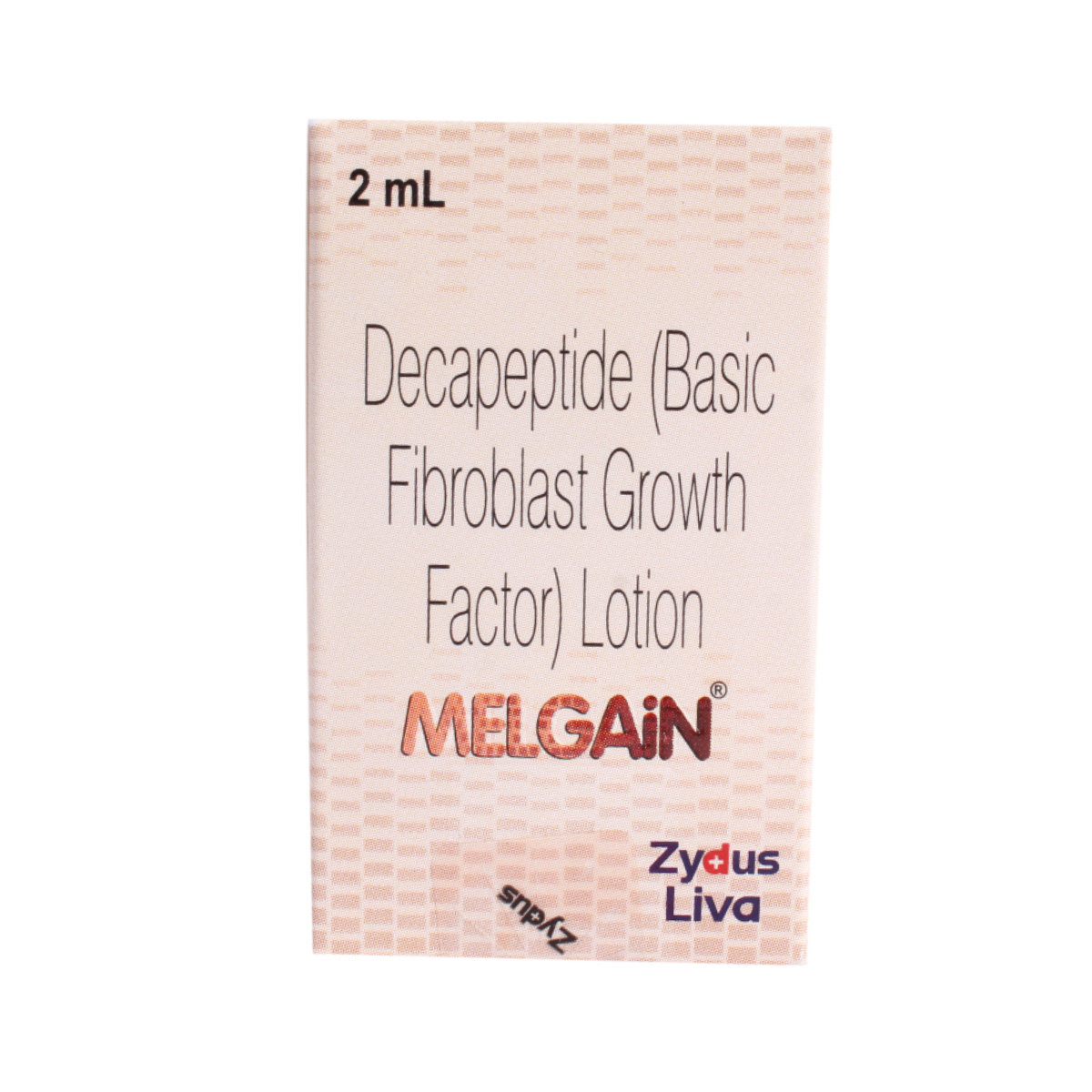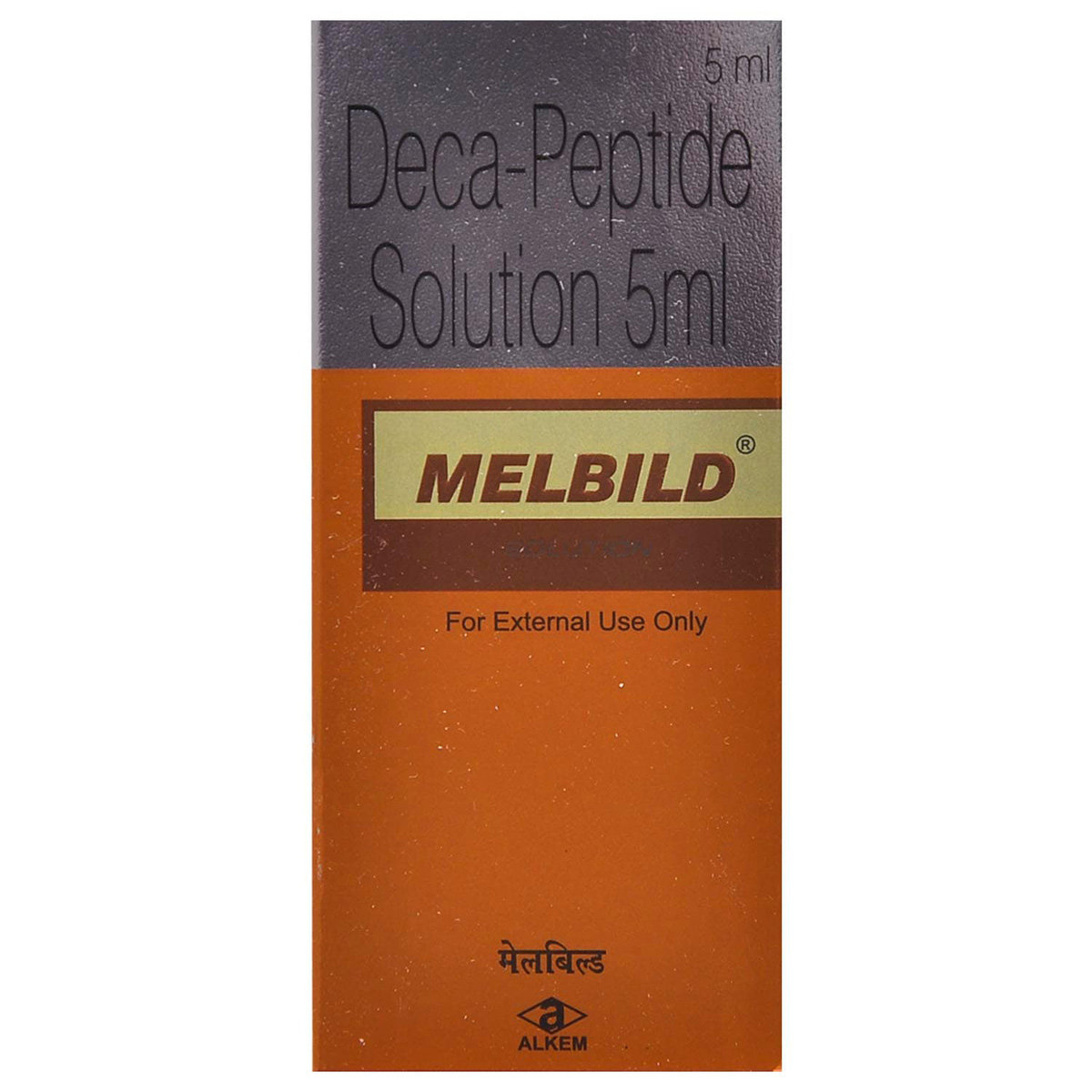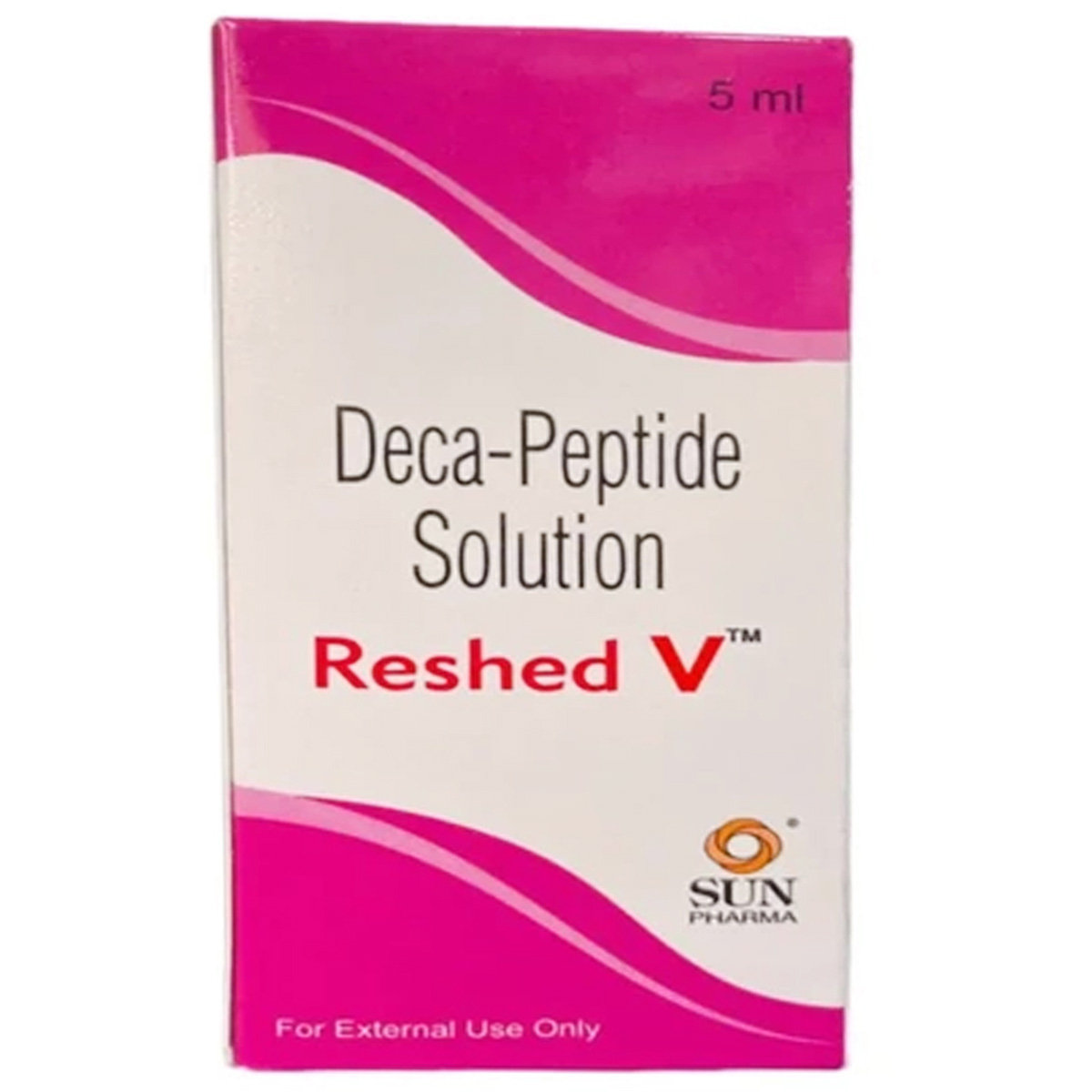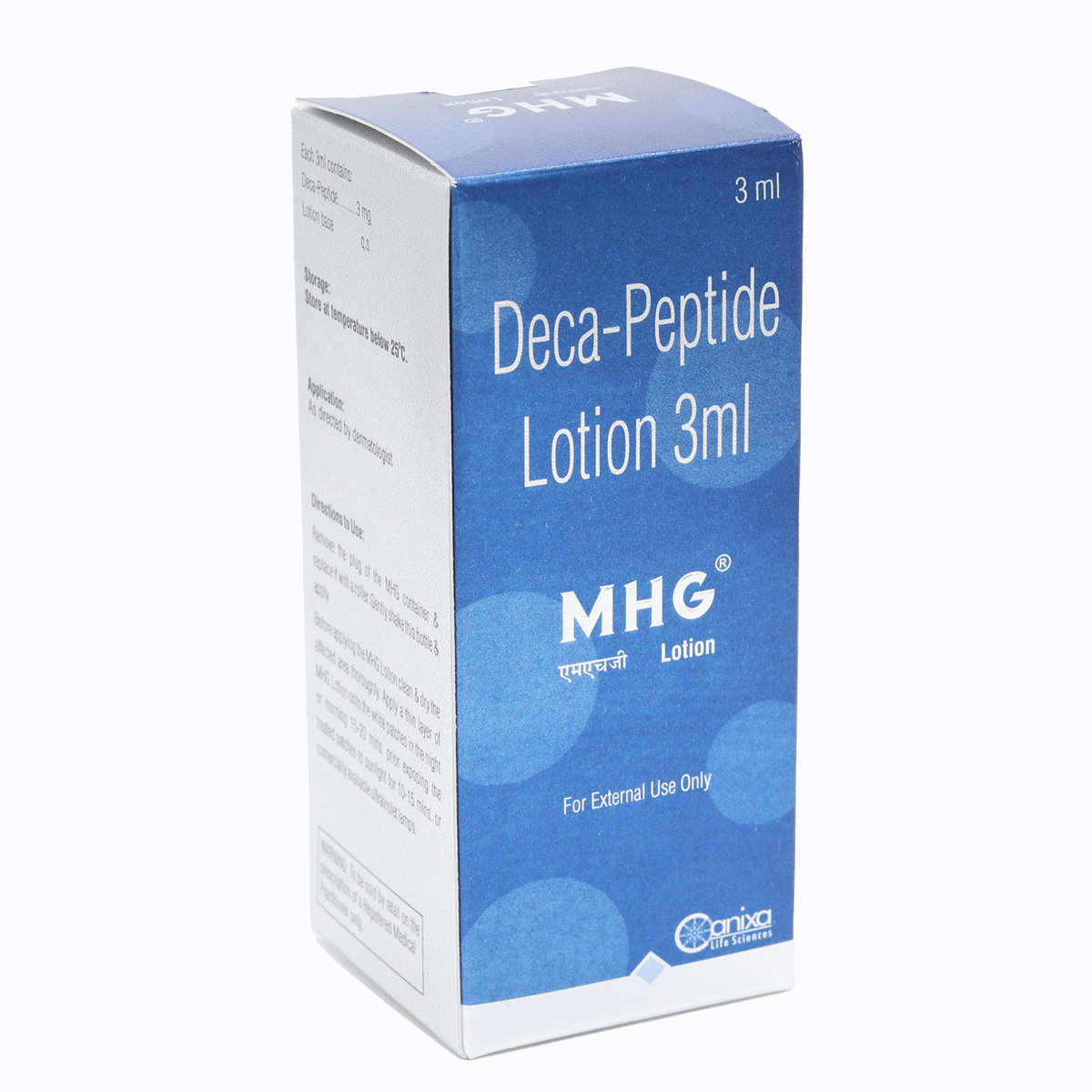Decapeptide
About Decapeptide
Decapeptide belongs to the 'depigmenting agents' class. It is primarily used in vitiligo treatment. Vitiligo is a long-term skin condition that causes pale white patches to appear on the skin. It is caused by a lack of melanin, the pigment in the skin. Vitiligo can affect any skin area, but it is most common on the face, neck, hands, and skin creases.
Decapeptide contains 'Decapeptide' as an active ingredient. Topical application of Decapeptide solution induces migratory behaviour and proliferation of melanin-producing cells (melanocytes) in white depigmented patches of skin and roots of the hair. Thereby, it helps to treat vitiligo patches.
Decapeptide is solely intended for external use. In some cases, you may experience skin irritation, dry skin, burning sensation. Most of the Decapeptide's side effects do not necessitate medical treatment and gradually fade over time. However, if the side effects persist or worsen, please contact your doctor.
You should not take Decapeptide if you are hypersensitive to any components/ingredients in the formulation; please check with your healthcare provider if you are unsure about it. Keep your physician up to date on your health condition and the medications you are using to rule out any possible interactions. Consult your doctor before taking Decapeptide if you are pregnant or breastfeeding.
Uses of Decapeptide
Medicinal Benefits
Decapeptide belongs to the group of medicines called 'depigmenting agents'. It contains 'Decapeptide' as an active ingredient used to manage vitiligo patches. Topical application of Decapeptide solution induces migratory behaviour and proliferation of melanin-producing cells (melanocytes) in white depigmented patches of skin and roots of the hair. Thereby, it helps to treat vitiligo patches.
Directions for Use
- Follow your doctor’s instructions on the dosage and timing of this medication.
- Apply a small amount of Decapeptide as a thin layer and gently rub it on the clean and dry affected area of the skin.
- Decapeptide is for external use only.
- Avoid contact of the Decapeptide with the nose or eyes. In case of accidental contact with these areas, thoroughly rinse them with water.
Storage
Side Effects of Decapeptide
- Skin irritation
- Dry skin
- Burning sensation
Drug Warnings
Do not use if you are hypersensitive or allergic to decapeptide or any ingredients in the Decapeptide. Inform your doctor if you are using any medicines other than Decapeptide. Before using this medicine, you should inform your doctor if you are pregnant, planning pregnancy, or breastfeeding. Decapeptide may make your skin more sensitive to the sun. Use sunscreen and protective clothing when outdoors as per doctors' advice. It may also cause changes in the colour of your untreated skin. Talk to your doctor if this bothers you. Decapeptide is solely intended for external use. Avoid making contact with your eyes, mouth and nose. In the event of accidental contact, thoroughly rinse with cold water.
Drug Interactions
Drug-Drug Interactions: No interactions were found/established.
Drug-Food Interactions: No interactions were found/established.
Drug-Disease Interactions: No interactions were found/established.
Drug-Drug Interactions Checker List:
Safety Advice

Alcohol
cautionNo interactions were found/established.

Pregnancy
cautionThe safety of Decapeptide during pregnancy has not been established. Please seek medical advice before using the Decapeptide.

Breast Feeding
cautionThe safety of Decapeptide during lactation has not been established. Please seek medical advice before using the Decapeptide.

Driving
safe if prescribedDecapeptide has no or negligible influence on the ability to drive or use machines.

Liver
safe if prescribedNo interactions were found/established.

Kidney
safe if prescribedNo interactions were found/established.

Children
cautionLimited research is available on the use of Decapeptide in children. So, please do not use Decapeptide in children without a doctor's advice.
Habit Forming
Diet & Lifestyle Advise
- Consume bananas, apples, leafy greens, kale or romaine lettuce, chickpeas, garbanzo beans, root vegetables, beets, carrots, radishes, figs and dates.
- Take salmon, sardines and other fish rich in omega-3 fatty acids.
- Take antioxidant-rich herbs and spices like thyme, sage, cumin and ginger.
- Avoid or limit the intake of blueberries, citrus, coffee, curds, fish, fruit juice, gooseberries, grapes, pickles, pomegranates, pears, red meats, tomatoes, and wheat products.
- Avoid alcohol intake and quit smoking.
- Wear loose-fitting bodywear and clothing, such as boxers or boy shorts. Tight clothing can irritate sensitive skin and cause symptoms to worsen.
- Choose natural fabrics/clothes made from cotton or silk that are kinder to your skin than synthetics.
Patients Concern
Disease/Condition Glossary
Vitiligo: Vitiligo is a chronic skin disorder that causes pale white spots to appear on the skin. It is caused by a deficiency of melanin, which is the pigment in the skin. Vitiligo can affect any skin area, but it commonly happens on the face, neck and hands and in skin creases. Vitiligo typically begins as a pale patch of skin that gradually becomes completely white. A patch's centre may be white, with paler skin surrounding it. The severity of the condition varies from person to person. Some people develop a few small white patches, while others develop larger white patches that spread across large areas of their skin.
FAQs
Decapeptide belongs to the "depigmenting agents" class. It is primarily used in vitiligo treatment.
Decapeptide promotes the formation of pigment-producing cells known as melanocytes. It also aids in the migration of melanocytes to the afflicted area, restoring skin tone.
Depending on the severity of your medical condition, your doctor may prescribe it to you for an extended time on a daily basis. However, please do not use it continuously without consulting a doctor.
Do not apply any other topical medications without a doctor's recommendation. If it requires the application of any other medication, please maintain at least 2 hours gap in-between them.
Decapeptide is safe if used as prescribed. No severe or fatal side effects or contraindications have been reported so far. If any of the side effects persist or worsen, consult your doctor.
Vitiligo does not cause skin discomfort, such as dryness, but the patches can sometimes be itchy.
It may vary depending on your skin concerns and the treatment protocol your doctor recommends. It is important to follow the specific instructions provided with the product or your doctor's instructions. Consult a professional if you have any questions or concerns about its use.
Decapeptide is a treatment for vitiligo, a skin condition characterized by white patches due to melanin deficiency. While Decapeptide can help promote melanocyte proliferation and migration, leading to repigmentation in affected areas, it may not completely cure white patches in all cases. Results may vary depending on individual skin types, the severity of vitiligo, and consistent product use. Some users may experience significant repigmentation, while others may see partial or minimal improvement.
The safety and effectiveness of Decapeptide in children have not been extensively studied. As a result, it is recommended to exercise caution and consult with a healthcare professional or paediatrician before using Decapeptide in children.
Decapeptide is only for external use. Take a small amount of Decapeptide on the fingertip and apply it as a thin layer on the clean and dry affected area as prescribed by your doctor. Wash your hands before and after using Decapeptide if your hands are not the affected area to prevent the spread of infection.
Decapeptide is generally considered safe when used as directed. However, there may be potential side effects or interactions to be aware of. Common side effects may include mild skin irritation, redness, itching, or dryness. These effects are usually mild and temporary, but consult your healthcare professional if they persist or worsen. To ensure safe use, follow the instructions, do a patch test, and start with a small area. Consult your healthcare professional for personalized guidance if you experience any unusual symptoms or have concerns.
Yes, childhood vitiligo can go away on its own in some cases. According to the American Academy of Dermatology, approximately 10-20% of children with vitiligo experience spontaneous repigmentation, meaning their skin regains its natural pigment without treatment. Additionally, early treatment may also improve the chances of repigmentation. However, it's essential to note that vitiligo can be unpredictable, and the likelihood of it going away on its own or with treatment varies from child to child.
Vitiligo is a chronic skin disorder that causes pale white spots to appear on the skin. It is caused by a deficiency of melanin, which is the pigment in the skin. Vitiligo can affect any skin area, but it commonly happens on the face, neck, and hands, as well as in skin creases. Vitiligo typically begins as a pale patch of skin that gradually becomes completely white. A patch's centre may be white, with paler skin surrounding it. The severity of the condition varies from person to person. Some people develop a few small white patches, while others develop larger white patches that spread across large areas of their skin.
Decapeptide promotes repigmentation and improves patient outcomes in vitiligo. But it does not cure permanently.
Decapeptide represents a safe and effective therapeutic option for vitiligo treatment.
Decapeptide is a possible therapy option for vitiligo! While it is not yet a proven cure, studies suggest it may aid in skin repigmentation and improve the appearance of vitiligo lesions. However, keep in mind that everyone's experience with vitiligo is unique, and what works best for one person may not work for another.
Decapeptide contains 'Decapeptide' as an active ingredient.
Common side effects of Decapeptide may include skin irritation, dry skin, and a burning sensation. Most of the $ name's side effects do not necessitate medical treatment and gradually fade over time. However, please contact your doctor if the side effects persist or worsen.
The exact cause is unknown, but it's believed to be an autoimmune disorder, possibly triggered by genetic, environmental, or stress factors.
Decapeptide is generally considered ideal for all skin types, but consulting a healthcare professional for personalized advice is essential.
Vitiligo itself is not painful, but some people may experience itching or discomfort due to skin dryness or other related conditions.
Decapeptide may help promote skin repigmentation, but its effectiveness in preventing the spread of vitiligo is still being studied.
Yes, protecting your skin from the sun, maintaining a healthy diet, and managing stress may help manage vitiligo.
Hormonal fluctuations may potentially trigger vitiligo, but more research is needed to understand the relationship.
Decapeptide may have the potential to treat skin depigmentation caused by other disorders, such as alopecia areata or skin trauma, but additional research is needed. Do not treat any condition on your own using Decapeptide.
Follow the application frequency and dosage directions advised by your healthcare practitioner or on the product's label.
Consult a healthcare practitioner before using Decapeptide in sensitive regions, as its safety and efficacy have yet to be completely demonstrated.



